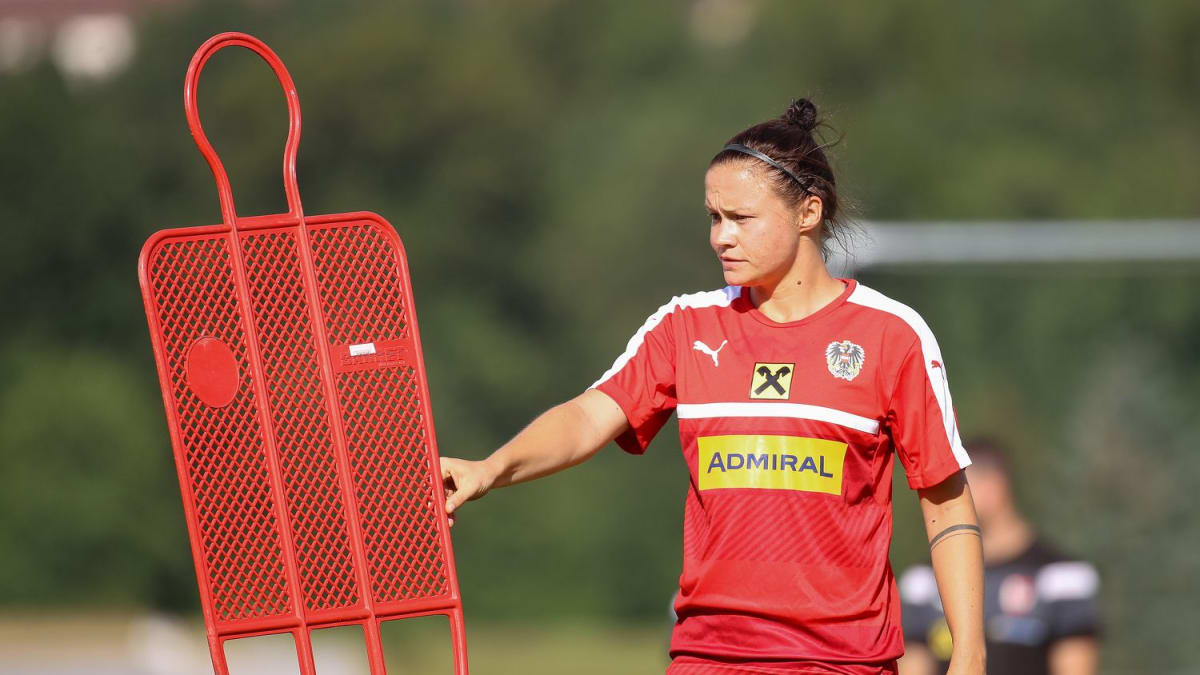The federation explains that only about a quarter of ÖFB players have a professional contract, and only less than one in ten can make a living exclusively from playing football.
Former team player Stephanie Enzinger is committed to developing women's football.
Jeep pictures
ÖFB players still face some inequality compared to their male counterparts when it comes to the framework conditions of their profession. Only about a quarter have a professional contract, and less than one in ten can make a living exclusively playing football, according to a survey by the youth association among 114 Bundesliga players from eight clubs in Austria. If there is a contract, the term is often very short.
“Playing soccer costs women money to this day,” Stephanie Enzinger, a former national team player, said at a federation press conference on Thursday. In the survey, 32 percent said they spend up to 750 euros a year on average on playing football, for example on buying equipment. Another 27% spend up to €500 a year, and only 5% don't spend any money at all. Male professional soccer players typically do not incur any expenses for their equipment.
Commitment to the same time
On the other hand, the time commitment is about the same as for male professional players, said Union Players Association member Thomas Beckelmann. Most players (38%) say they invest up to 20 hours into their playing career, while another 37% invest up to 30 hours.
Combining professional football with another job is very difficult, Enzinger continued. Therefore many players end their careers too early because they will have to choose football or another job.
Anyone who gets a professional contract as an Austrian player often has a very short contract. According to the Union survey, which was evaluated by the Institute for Empirical Social Research (IFES), 44 percent of women have a one-year contract and 26 percent have a two-year contract. In contrast, male colleagues who work in the first and second leagues through a collective agreement usually have much longer contracts.
“First and foremost, it is about equality,” said Viktoria Schnaderbeck, former captain of the Austrian national team. This must also be clearly communicated to stakeholders. A financial framework is also necessary so that football becomes “not only a passion, but also a professional opportunity” for women, Enzinger said.
Football should not be a 'losing business'.
The federation wants to work for better conditions for ÖFB players and demands, among other things, that clubs that already have a professional team provide the necessary funds to at least finance equipment for women's teams. “It has to happen quickly so that football does not become a losing business,” Beckelman said.
A training camp for women looking for a club is also being discussed with the Employment Service (AMS), Beckelman said. This procedure is currently only available to men; According to the Union poll, 92 percent of ÖFB women believe that introducing such a camp for women makes sense. According to Beckelmann, the introduction of a collective agreement for professional female footballers is also a goal that will be pursued in the long term.

“General writer. Twitter fanatic. Award-winning alcohol practitioner. Pop culture guru.”







More Stories
Strong 1:1 in the test against Sparta Prague
Alexander Erler reaches doubles final in Kitzbühel
Leading a group of five with a new leader